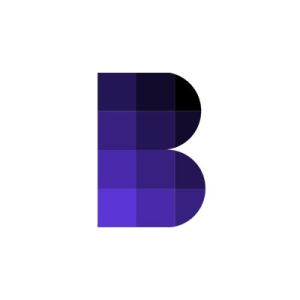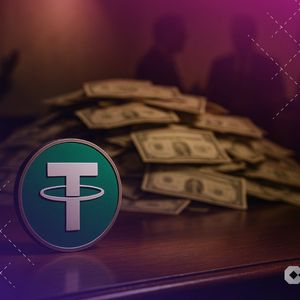South Korea Stablecoin: Kiwoom Securities’ Bold Leap into Digital Finance
6 min read
BitcoinWorld South Korea Stablecoin: Kiwoom Securities’ Bold Leap into Digital Finance In a significant development signaling the deepening integration of traditional finance with the burgeoning digital asset world, Kiwoom Securities, one of South Korea’s prominent brokerage firms, has officially thrown its hat into the ring of digital currencies. The company recently filed several trademark applications related to stablecoins, a move that could reshape the landscape of the South Korea stablecoin market and beyond. This action places Kiwoom Securities alongside other major financial institutions in the country, all exploring the immense potential of stable digital assets. What’s Driving Kiwoom Securities’ Interest in a South Korea Stablecoin? The news, initially reported by Digital Asset, highlights Kiwoom Securities’ proactive steps into the stablecoin arena. Data from the Korean Intellectual Property Rights Information Service (KIPRIS) confirms the firm’s applications for intriguing names such as “KiwoonKRW” and “KRWKW.” These names strongly suggest an intention to launch a stablecoin pegged to the Korean Won (KRW), offering a digital representation of the national fiat currency. But why are established financial giants like Kiwoom Securities venturing into this relatively new territory? The motivations are multi-faceted: Efficiency and Cost Reduction: Stablecoins can facilitate faster, cheaper, and more efficient transactions, especially for cross-border payments, compared to traditional banking rails. New Revenue Streams: Developing and managing stablecoins can open up new business models, including transaction fees, liquidity provision, and innovative financial products built on stablecoin infrastructure. Responding to Market Demand: There’s a growing global interest in digital assets. Financial institutions recognize the need to adapt and offer services that cater to this evolving demand, lest they be left behind. Regulatory Clarity (Emerging): As governments worldwide, including South Korea, work towards clearer regulatory frameworks for digital assets, the environment becomes more conducive for institutional participation. Future-Proofing: Embracing blockchain technology and stablecoins is seen as a way to future-proof their operations and maintain relevance in a rapidly digitizing financial world. The Growing Trend: Who Else is Shaping the South Korea Stablecoin Landscape? Kiwoom Securities isn’t an isolated case. Its entry marks it as the third major securities firm in South Korea to explore stablecoin initiatives. This follows similar strategic moves by: NH Investment & Securities: One of the largest brokerage firms in South Korea, NH Investment & Securities has been actively researching and developing blockchain-based financial services, including stablecoin-related projects. Shinhan Securities: A key player in the Korean financial market, Shinhan Securities has also shown keen interest in digital assets, with reports indicating their exploration of stablecoin solutions to enhance their digital offerings. This collective push by leading traditional financial institutions underscores a significant paradigm shift. It indicates a growing confidence in the underlying technology and a recognition of stablecoins as a crucial bridge between the conventional financial system and the decentralized world of blockchain. The convergence of these two realms could lead to a more robust, efficient, and interconnected financial ecosystem in South Korea. What Are the Benefits and Challenges for a South Korea Stablecoin? The introduction of institutional stablecoins, particularly a potential South Korea stablecoin pegged to the Won, brings a host of potential benefits but also presents considerable challenges. Potential Benefits: Financial Inclusion: Easier access to digital financial services for a broader population. Faster Settlements: Instantaneous transactions, especially for cross-border payments, reducing delays and costs. Programmable Money: The ability to embed logic into money, enabling automated payments, escrow services, and more sophisticated financial instruments. Enhanced Liquidity: Increased liquidity in digital asset markets by providing a stable, reliable on/off-ramp for fiat currency. Innovation Hub: Positioning South Korea as a leader in digital finance innovation. Challenges to Overcome: Regulatory Clarity: While progress is being made, clear and comprehensive regulations are still needed for stablecoin issuance, custody, and usage to ensure consumer protection and financial stability. Technological Integration: Seamlessly integrating blockchain technology with existing legacy financial systems can be complex and costly. Market Adoption: Educating the public and ensuring widespread adoption will require significant effort and trust-building. Competition: The market may become competitive, with multiple stablecoin offerings vying for dominance. Security Risks: Like all digital assets, stablecoins are subject to cybersecurity threats, requiring robust security measures. Table: Traditional Payments vs. Stablecoin Payments Feature Traditional Bank Transfer Stablecoin Payment Speed Hours to Days (especially cross-border) Seconds to Minutes Cost Varies, often higher for international Typically lower transaction fees Accessibility Requires bank account, banking hours 24/7 access, internet connection Transparency Limited visibility to end-users Blockchain ledger provides transparency What Does This Mean for the Future of the South Korea Stablecoin Ecosystem? Kiwoom Securities’ trademark applications are more than just legal formalities; they are a clear signal of the institutional world’s increasing confidence in digital assets. This move, coupled with similar initiatives from other major players, suggests that we are on the cusp of a significant transformation in South Korea’s financial sector. Actionable Insights for the Future: Watch for Regulatory Developments: Keep an eye on how South Korean regulators respond and adapt to these institutional stablecoin efforts. Their stance will significantly influence the pace and direction of adoption. Emergence of KRW-Pegged Stablecoins: Expect more announcements regarding actual stablecoin launches from these firms. A robust KRW-pegged stablecoin could become a cornerstone of digital commerce in the region. New Financial Products: These stablecoins could pave the way for innovative financial products and services, from decentralized finance (DeFi) applications to enhanced cross-border trade solutions. Increased Institutional Adoption: Kiwoom’s move could inspire other traditional financial institutions in South Korea and beyond to explore their own digital asset strategies. The journey towards a fully integrated digital financial system will undoubtedly have its challenges, but the commitment shown by major players like Kiwoom Securities highlights the inevitable shift. The future of finance in South Korea is becoming increasingly digital, with stablecoins poised to play a pivotal role. In conclusion, Kiwoom Securities’ foray into the South Korea stablecoin market is a testament to the undeniable momentum of digital assets. As more traditional financial powerhouses embrace blockchain technology, we are witnessing the gradual but profound reshaping of global finance. This bold step by Kiwoom, following the lead of NH Investment & Securities and Shinhan Securities, sets a strong precedent for a future where digital currencies are not just a niche interest but an integral part of mainstream financial operations in South Korea and potentially, across Asia. Frequently Asked Questions (FAQs) 1. What is a stablecoin? A stablecoin is a type of cryptocurrency designed to minimize price volatility. It achieves this by pegging its value to a stable asset, such as a fiat currency (like the Korean Won or US Dollar), a commodity (like gold), or another cryptocurrency, often through collateralization or algorithmic mechanisms. 2. Why are traditional financial institutions like Kiwoom Securities interested in stablecoins? Traditional financial institutions are interested in stablecoins for several reasons, including the potential for increased efficiency in transactions, reduced costs, the creation of new revenue streams through digital asset services, and the ability to adapt to evolving market demands for digital finance solutions. It’s also a strategic move to future-proof their operations in a rapidly digitizing world. 3. What does “KiwoonKRW” and “KRWKW” imply? These trademark applications strongly suggest that Kiwoom Securities intends to launch a stablecoin that is pegged to the Korean Won (KRW). This would mean that one unit of “KiwoonKRW” or “KRWKW” would always be redeemable for one Korean Won, providing a stable digital representation of the national currency. 4. How does Kiwoom Securities’ move compare to other firms in South Korea? Kiwoom Securities is the third major securities firm in South Korea to make significant moves towards stablecoin development, following NH Investment & Securities and Shinhan Securities. This indicates a broader trend of institutional adoption of digital assets within the South Korean financial sector. 5. What are the potential benefits of a South Korea stablecoin for everyday users? For everyday users, a South Korea stablecoin could offer faster and cheaper transactions, especially for international remittances. It could also provide easier access to digital financial services, potentially leading to more innovative payment solutions and investment opportunities within the digital asset ecosystem. Did you find this article insightful? Share it with your network on social media and help us spread awareness about the exciting developments in the world of digital finance! To learn more about the latest crypto market trends, explore our article on key developments shaping stablecoin institutional adoption. This post South Korea Stablecoin: Kiwoom Securities’ Bold Leap into Digital Finance first appeared on BitcoinWorld and is written by Editorial Team

Source: Bitcoin World



